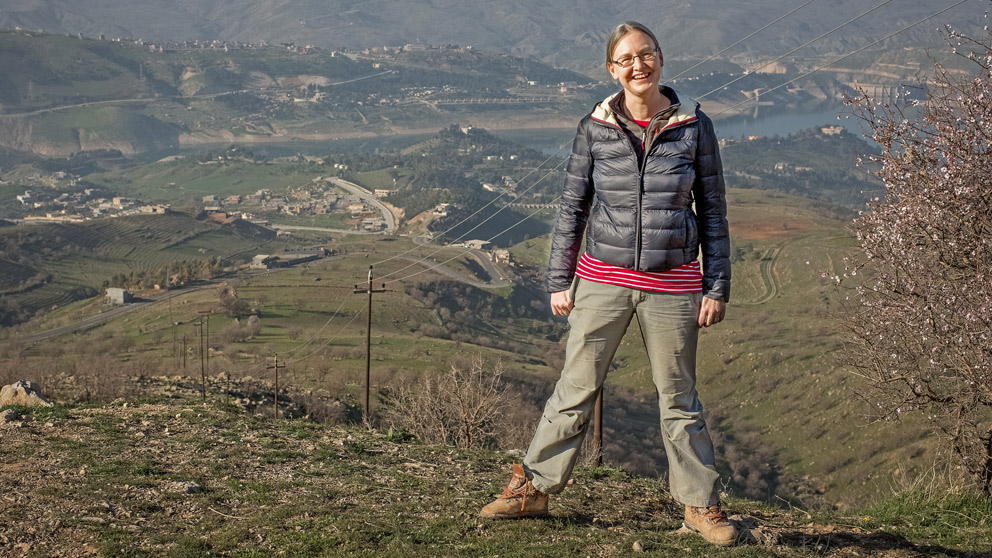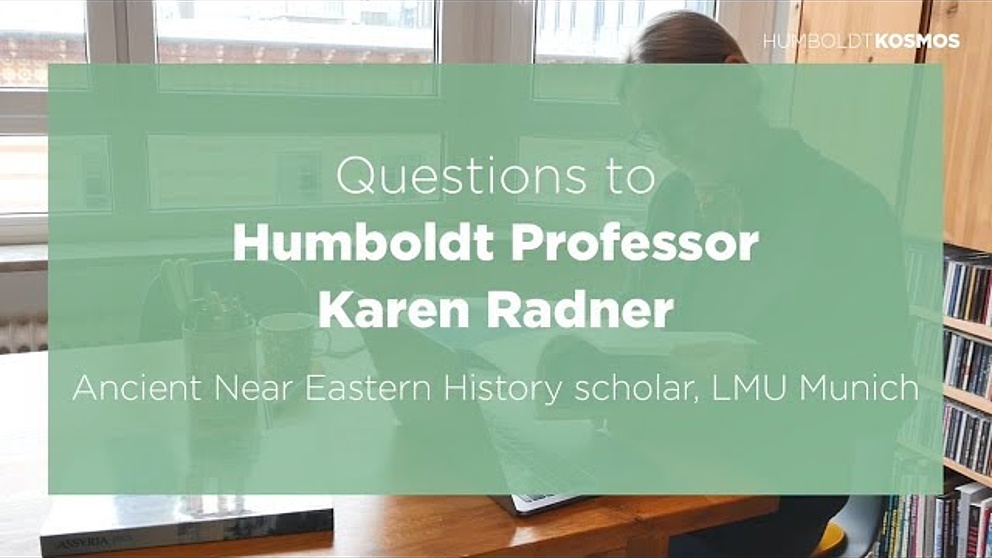Jump to the content
- {{#headlines}}
- {{title}} {{/headlines}}

“I love the feeling of discovering something nobody has ever discovered before,” says Karen Radner, describing what drives her as a researcher. She is one of the world’s leading experts on the history of Mesopotamia in the second and, especially, the first millennium before Christ. She is particularly interested in cuneiform records with which she can reconstruct the social conditions in the first major empire in human history.
Ancient historians, according to the Austrian scholar, should also include the historical settlements “further to the East” in their research. This is part of her mission at LMU in Munich where she became a Humboldt Professor in 2015, moving from London. One of the problems has been that there are too few cuneiform scholars amongst her colleagues. “I would be delighted if I had more competition in the field” – both at LMU and beyond.

